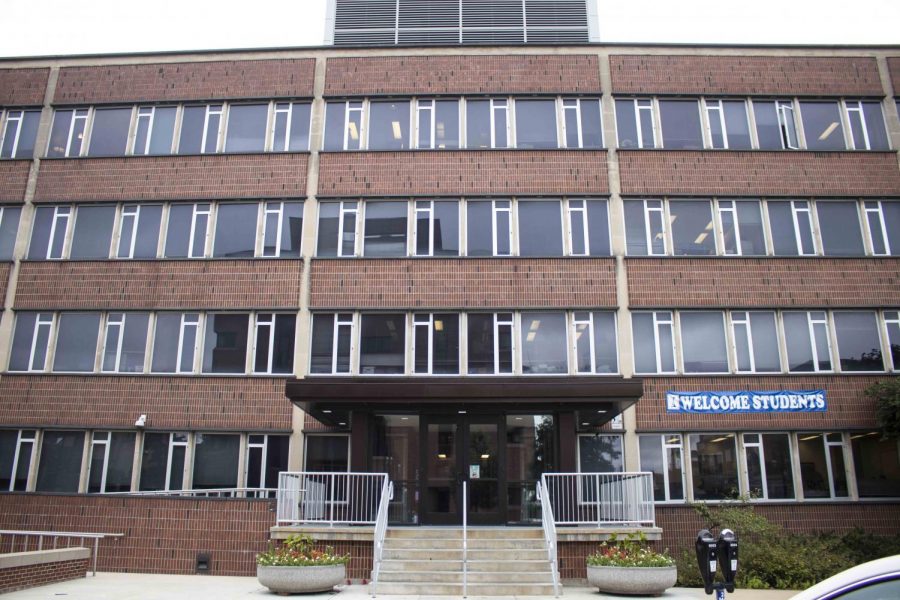Regardless of trade wars, international students should remain hopeful
International Student and Scholar Services Building is located at 610 East John St..
September 25, 2018
We’ve witnessed an unbelievable trade conflict between the top two economies in the world: the United States and China. President Donald Trump showed his optimism on Twitter this spring: “Trade wars are great, and easy to win.”
Along with the trade conflict, there was even a threat made by the president himself that the United States might put visa restrictions for Chinese international students taking certain majors in the U.S. Meanwhile, the exchange rate of U.S. dollar skyrocketed this year, which discourages international students from studying on U.S. campuses. The trade war shouldn’t and won’t stop international students from pursuing education here.
Modern trade theory tells us trade conflicts are so harmful that each country should prevent them. The president certainly doesn’t think so. When we look back, we will unfortunately see the disturbing process of the trade conflict between the United States and China.
Even though our country used to have trade conflicts with powerhouses like Japan and Europe, China may stop them all. The U.S. applied tariffs to many products produced in China in the past several months. In response to these policies, China quickly fought back, threatening to apply high tariffs on certain goods made in the United States, such as farm products. Unfortunately, as the land of corn, our state also suffers.
Things are getting weirder. After Trump showed his willingness of restricting student visas, the trade war began to affect international students. Friends I know from China experienced harsher requirements when traveling to the U.S. for further education this year. Some were even checked for hours in airports.
Get The Daily Illini in your inbox!
Let’s look beyond the trade war and its external impacts on international students. It’s protectionism that accounts for this, and it is not only a bad economic policy, but also an upsetting initiative. As Obama said in his Sept. 7 speech here at the University, “it is a symptom, not a cause.” Protectionism excludes foreign goods, ideas and good people, which hurts diversity in every college campus.
The trade war shouldn’t discourage international students from achieving higher education. Where a student goes for college should be a personal freedom. It’s reasonable when countries have conflicts on trade, but it certainly seems quite desperate and un-classy to stop prospective students from going where they please for education.
The University is famous for its academic success and diversity. In 2017, there were 10,834 students from 113 countries enrolled in our University. In 2005, there were only 4,695 international students on the campus.
The increase of diversity brought fresh thoughts and energy to the campus and local communities. A great number of international students perform excellently on study and research, with some of them significantly contributing to culture and science. Chinese students, who collectively make up over 5,000 of the students on the campus, also play an important role in promoting diversity and academic achievements.
Protectionism will hardly survive on our campus. The ongoing trade war might make international students feel a little rocky, but it will never be the end of the world. When policy makers finally realize that intercultural communication brings wisdom and even economic efficiency, they will choose to open the door instead of closing it.
I must say protectionism is growing in other parts of the U.S. Walls are built, free trade is in jeopardy and even bright-minded individuals are declined for their pursuits in education.
What should we do? Perhaps we just need to follow what the former president told us to do: vote.
Vote for freedom. Vote for diversity. Vote for prosperity.
Daniel is a graduate student in LAS.







